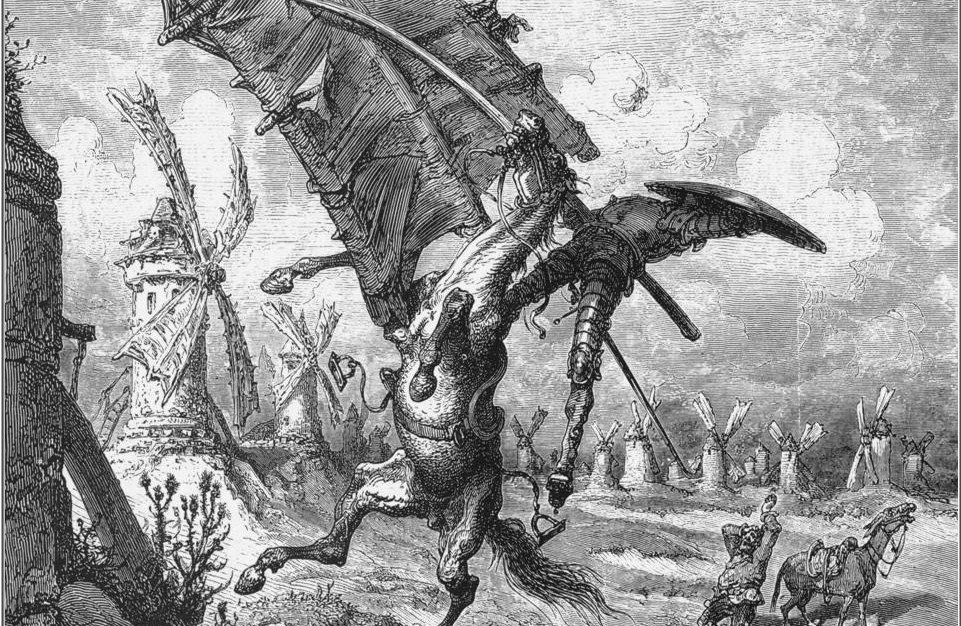I was hoping to stop writing on austerity and switch to nationalism and the extreme right in Europe. However, France’s recognition of the Syrian National Council (SNC) as the sole representative of the Syrian state/people has forced me to take a Middle Eastern detour. France is the first country to go this far, and it is considering arming the rebels with “defensive” weapons –which is probably illegal.
Considering François Hollande pitched himself as the “normal” alternative to his histrionic predecessor, I was hoping for a more modest foreign policy. All things considered, this might not be about the president as much as it is about France’s incoherent relationship with the Islamic world. Hero-worshipping Ahmad Shah Massoud while the country turned its back on its Muslim citizens is an example among many. Today’s support of the SNC is also ironic, especially when put in context of France’s foreign policy history. Throughout World War I, Arabs revolting against Ottoman rule received British and French support –to be backstabbed as soon as the war ended. The French took possession of their new mandate in Syria with distinctive tactfulness:
(General Henry) Gouraud is reputed to have stood upon Saladin’s grave, kicked it and said: “The Crusades have ended now! Awake Saladin, we have returned! My presence here consecrates the victory of the Cross over the Crescent.”
Given its past, one would imagine it does not suit France to run around the Arab world undoing affronts and offenses, like Cervantes’ Don Quixote. In fact, that is exactly what France intends to do. But other issues are also at stake. The first is whether the move will have any relevant consequences (i.e. cascade and force others to follow, eventually paving the way for an armed intervention). My guess is not. Capacity is still the bottom line in this context, a fact the Libyan precedent underscores rather than disproves. Although the US “lead from behind” as Britain and France plunged in, it ended up doing most of the heavy lifting anyway. Europe’s leading military powers are barely capable of projecting force across the Mediterranean, so nobody should expect them to intervene against a regime that, unlike Qhadaffi’s, has a serious army and chemical weapons. The US in turn is “pivoting” to Asia and has other fish to fry. France also has other fish to fry, seeing as austerity fetishists consider it the latest “sick man of Europe.” I don’t find the claim convincing, but Moody’s does. At the same time France is withdrawing from Afghanistan –a decision I find sensible, but undercuts the relevance of its SNC declaration. My overall impression is the Hollande government did not think this through.
A second issue is whether the decision is in itself smart. Again, I don’t think so. I am skeptical of the desirability of arming the Syrian opposition. Turkey and Saudi Arabia are already doing so, which is troubling given the latter’s track record. Tell me how this ends –the line has become a cliché, but the standard answer in Afghanistan, Iraq, or Libya –we don’t have a clue, and we’ll go in anyway– is not satisfactory. The lessons, however, should be clear by now. First, military power is not a useful tool for “nation-building.” Second, small wars start when they end. I was surprised to hear Libya defined as a success story year ago, as if time had stopped when rebels entered Tripoli. Now is the moment to start gauging the intervention, and the evidence is troubling. As a criterion and guideline for intervention, the Powell Doctrine remains more convincing than an inconsistently applied Responsibility to Protect.

Couldn't you argue that Libya passes the Powell Doctrine? There's not a lot written on the subject of how the NSC made the decision to intervene, but Michael Lewis's Vanity Fair expose on the President offers a pretty good first look.
Desert Storm is the classic Powell Doctrine intervention. National security at stake, a clear mandate and exit strategy, and overwhelming military force. Libya strikes me as the exact opposite. Richard Hass, who was at NSC during the first Gulf War (and wrote a good book on the Iraq wars) made a similar point back in 2011.
http://online.wsj.com/article/SB10001424052748703…
Well written and argued!